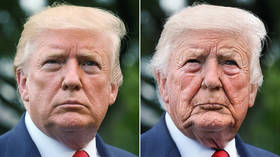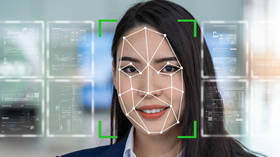US political hype over Russian pic editor FaceApp generates more cash for company – report

Selfie-editing service FaceApp, which, among other features, makes users look older, has earned $1 million in 10 days, Forbes reports. The revenues came despite warnings from US politicians against using the Russian-made app.
The AI-powered app, developed by Russian company Wireless Lab, went viral last week after around three years in existence. While social media users, including celebrities, started sharing their photos altered by the app’s “aging” filter, US Senate minority leader Chuck Schumer called for the launch of a formal FBI probe into the app, over alleged national security and privacy risks.
All the buzz allowed FaceApp to make more money, Forbes reported, citing global provider of mobile market data App Annie. The firm’s figures showed that from July 9 through July 19 the app earned $1 million (nearly 10 percent of its overall revenues) and was downloaded a total of 6.5 million times. Despite Apple users downloading the app less than half as much as Android users (2 million against 4.5 million), they contributed most to the company’s latest revenues.
The filters in the app are actually free, but users are required to pay to get rid of advertisement and a watermark on your photo, and to gain access to additional filters.
The founder of the company behind the app, Yaroslav Goncharov refused to comment on the Forbes report. Last week the app’s developers responded to privacy concerns, assuring that most photo-editing operations are processed via Cloud and that it has no access to any data that could identify a person. The company’s statement added that it does not “sell or share any user data with any third parties” or transfer its users’ data to Russia.
For more stories on economy & finance visit RT's business section















